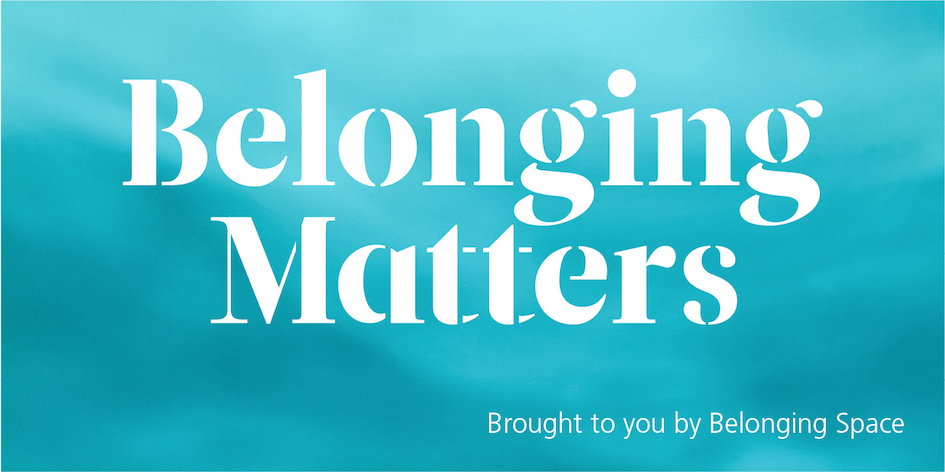I was at a North London hospital yesterday accompanying a friend. We signed in at reception, she was called in to her appointment, I could see some patients returned back to the waiting area for a while after a prep session.
So I asked at reception whether I should stay-put to give smiling support to my friend, or go down to the café.
The receptionist answered:
"Oh, I couldn't tell you about
that. We're not them."
Confusing.
"Well, how long might she be?"
"No, we're not them, they're
different and we're separate."
It was a Lewis Carroll conversation:
the person you are looking to for help is explaining not only that they can't
help you but that they shouldn't, because they are not part of the group that
would be able to help you.
She defined her lack of help through
NOT belonging to the department my friend was seeing. She reinforced the internal
structures:
"They just lease the space from
us."
Uh? It's all one NHS hospital, we
weren’t in a private wing or external company.
Then, Status:
"We're Surgical. We do day
surgery. A whole lot of top specialists doing lots of different things. ‘They’ just do one thing."
And finally, NON accountability.
She was not accountable for looking
after the patients of ‘Them’ beyond signing-in. So, you see, she
couldn't possibly help me.
The problem for this member of staff
was sharing a reception service with another department which used to be
separate. Though her job is to serve Reception for both units, she feels she 'belongs'
to the surgical, not the investigative, team. So she refused to do anything
beyond the basics.
She was dressed in claret-coloured
kit, 'raspberry scrubs'. (A staff sign said this was required dress code for
surgical teams: you get the importance of this now.)
"You need to ask someone in
blue" she said grabbing a lady in blue.
"Hello" said the lady in
blue
"I'm Esther. How can I help
you?"
Esther was straightforward. She told
me how long it might take, where to wait (the next room, not hard to point to),
to get tea for me but nothing for my friend because Esther was in charge of
that.
That's because Esther is a recovery
nurse. She is not a receptionist. It is not her job to look after patients'
anxious friends and families. She is not accountable for this. But she does it
anyway, because it makes a difference to her that people feel comfortable about
the procedure they are coming in for and the support around them.
The raspberry-scrubs receptionist
could have told me all that, in less sentences than the confusing stuff about
her Not Belonging to the other team.
OK, it’s not a big deal. Organising
people in reception has low level risk.
But it’s a neon-highlighter for how a sense of 'Not Belonging' can trounce personal accountability.
But it’s a neon-highlighter for how a sense of 'Not Belonging' can trounce personal accountability.
In another context, what if Not
Belonging, and Not Being Accountable, spreads to an ethical judgement or a
safety risk? We’ve seen catastrophic risks in many sectors.
Belonging leads to commitment; commitment means accountability.
Commitment means doing more than
basic tasks.
Commitment means relationship more than transactions.
Commitment means looking at consequences of actions.
Commitment means connecting up with other teams.
Commitment means relationship more than transactions.
Commitment means looking at consequences of actions.
Commitment means connecting up with other teams.
Commitment means being willing to go
further, accepting accountability for follow-through.
But it all begins with Belonging.
"We're not them, they're different, we're separate" sums up why organisations need a clear sense of belonging.
Most organisations are complex,
many-layered, a mix of mergers, acquisitions and sub-contracting, old and new
departments, specialist teams.
In the minefield of belonging to different territory, the lines of accountability can get mangled.
Each break in belonging is a potential breakdown of accountability, or failure-point for ethics, safety and strategy.
Wherever you fit in, you're still
part of the same goals. Your team, and its particular specialism, interconnects
with others. ‘We're’ all 'Us'.
And that means having a sense of belonging, a shared ethos on which to base commitment, and clear accountability to uphold it.
Show everybody in the organisation
how it all connects, the principles that bind all its communities into one, as
well as the particular focus of each team.
In a complex organisation like a hospital, it is interdependence not independence that makes it all work.
In this way, belonging brings the
cohesion to achieve effectiveness as well as efficiency.
I asked Esther if it was a good
hospital to work in. She gave answered firmly:
"It is. But do not look at
these new buildings and say it is a good hospital.
Look at the work, look at the people
doing the work. Look at how they work with each other.
Then you’ll see: is it a good
hospital?
It is a good hospital. But that
doesn't mean that everybody in it is good."
She’s right, and about a lot more than hospitals.
Do your teams feel
they belong to the same organisation?
Do your people share accountability?
Do your people share accountability?
Talk to us about how to create a
sense of Belonging.
isabel@belongingspace.com
www.belongingspace.com
Twitter
@IsabelBelonging
Twitter
@BelongingSpace
